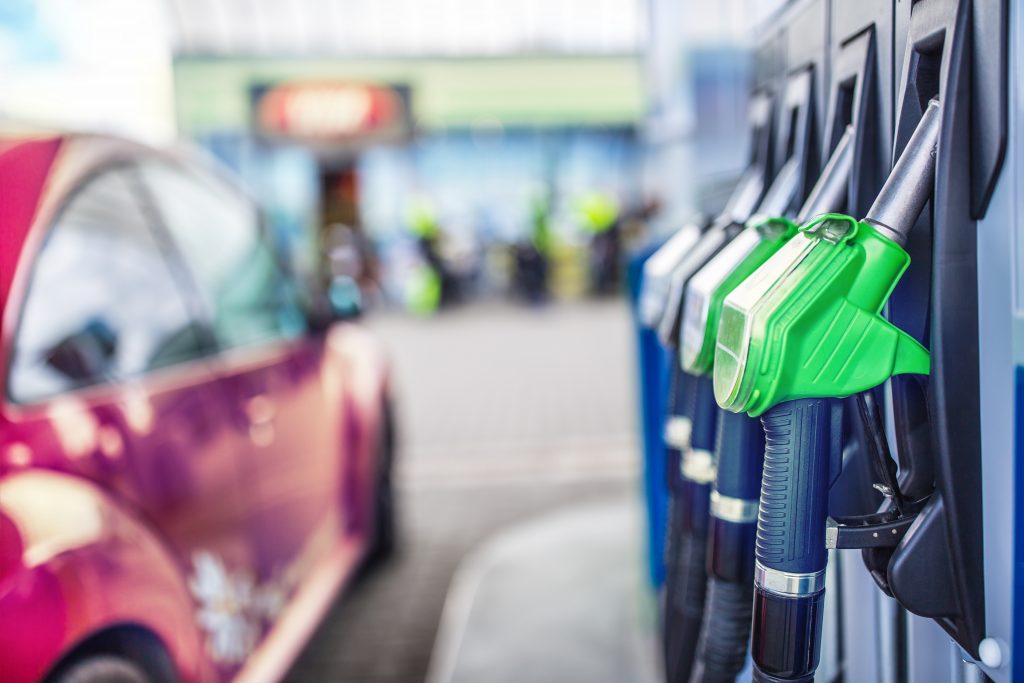Fuel prices increased by the biggest monthly jump since September last year, a motoring service's data finds.
Petrol surged in price by 4p in February and diesel climbed by almost 5p in the same period.
Filing up your vehicle with unleaded petrol cost 140.75p per litre at the beginning of the month and sped up to 144.76p by the end of it, according to RAC’s Fuel Watch data. That means it now costs an extra £2 for a full tank, rising from £77.41 to £79.62.
Diesel cost 4.7p more per litre in February than the previous month, rising from 148.53p to 153.22p, meaning a 55-litre family car now costs £84.27 for a full tank – £2.60 more than before.
Fuel prices have picked up the pace since falling to 140p in January, which was, at the time, the lowest amount for more than two years.
Wholesale market value of oil and the pound has caused price hikes
The monthly price jump follows the three-week hike from 29 January to 18 February. In that spell, unleaded petrol surged by 3p, and the inclining costs are thanks to the wholesale market value of oil, which smashed through the $80 per barrel mark on 8 February.
This, coupled with the pound being worth $1.26, has caused retailers to charge more to drivers to cover their costs.
However, drivers in Northern Ireland can enjoy filling up for up to 4.6p per litre cheaper with diesel vehicles and 5.6p per litre less with unleaded petrol.
An ongoing issue with petrol prices is the inconsistency in how supermarkets are pricing their fuel at the forecourt. This is despite an investigation by the Competition and Markets Authority (CMA) last year that found that some supermarkets were overcharging motorists for fuel.
Northern Ireland drivers can enjoy the cheapest fuel in the UK
In the investigation, a comparison site was launched and new powers were set to be handed to the public body as it scrutinises the UK fuel market, but the potential sanctions are still to be announced.
Between the cheapest and most expensive supermarket options, there is an 18p per litre difference in the choices – which are both from Asda pumps.
The lowest price was in its Middleton, Leeds and Ballyclare site, in Northern Ireland, while the most expensive was 163.9p at Parkgate Road in Chester.
The most expensive forecourt for diesel was also on that Asda site and, again, priced at 163.9p, but the cheapest diesel alternative from a supermarket was in Tesco’s Banbridge site in Northern Ireland, priced 21p cheaper at 142.9p.
February diesel price rise is in the top 20 increases of the 21st century
RAC fuel spokesperson Simon Williams described the fluctuating costs of petrol as a “postcode lottery.”
Williams said: “Our data shows that in February, drivers endured the highest monthly average fuel price increases since September 2023. What’s more, diesel’s 4.7p rise was the 14th largest since the year 2000 and the 4p that went on to petrol was the 17th biggest increase since the start of the century.
“What’s especially galling is the continuing difference in price between Northern Ireland and the rest of the UK. On average, fuel is 5p cheaper there, with big retailers appearing happy to operate on thinner margins per litre.
“Looking at average margins across the whole of the UK, retailers are currently taking around 10p per litre on average across both petrol and diesel. The supermarkets in particular have now noticeably upped their margins to 8p per litre compared to 6p in 2019. Luckily for drivers, this is lower than the last two years, when it was around 9.5p.”
‘Postcode lottery treats drivers so unfairly’
Williams added: “To put this into context, it means the cost of filling a family-sized car can be up to £10 more expensive in one part of the country than another. It’s important to remember this is the very same product being charged at vastly different prices based just on location.
“We hope that the eventual introduction of the monitoring body recommended by the CMA will help to bring an end to this postcode lottery that treats drivers so unfairly.”





